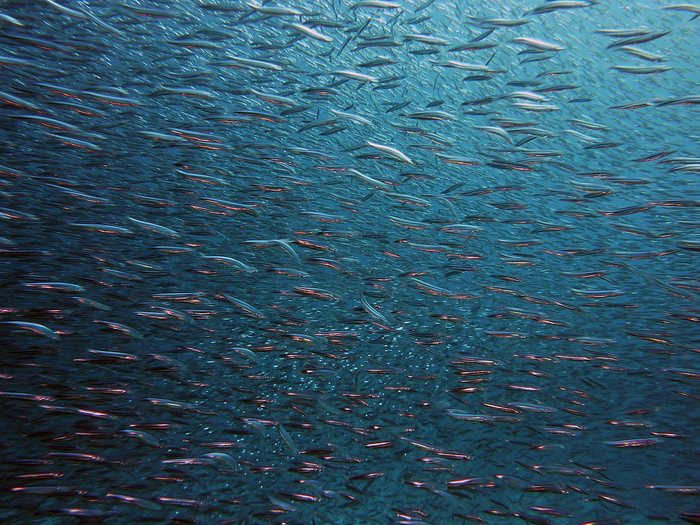Polar fish experience lower mortality than tropical fish, allowing them to delay reproduction until later in life when they are larger and can produce more eggs, according to a study by Mariana Álvarez-Noriega at Monash University in Australia and colleagues, publishing May 25th in the open access journal PLOS Biology. This may have implications for the effects of climate change on the sustainability of fish populations.

Credit: joakant, Pixabay (CC0, https://creativecommons.org/publicdomain/zero/1.0/)
Polar fish experience lower mortality than tropical fish, allowing them to delay reproduction until later in life when they are larger and can produce more eggs, according to a study by Mariana Álvarez-Noriega at Monash University in Australia and colleagues, publishing May 25th in the open access journal PLOS Biology. This may have implications for the effects of climate change on the sustainability of fish populations.
Organisms face a trade-off around when is the best time to reproduce. Fish continue to grow throughout life and larger fish tend to produce disproportionately more eggs than smaller fish, so it pays to reproduce later in life. However, fish that mature slowly risk dying before they reach reproductive age. Therefore, life history theory predicts that the age at which a fish starts reproducing should be influenced by the species’ growth rate and mortality risk. To test this hypothesis, researchers applied an existing mathematical model of life history evolution to published data on weight at birth, growth rate, and adult mortality for 47 species of marine fish. They found that tropical fish experience 80% higher mortality than polar fish. The model predicted that polar fish should take advantage of their lower mortality risk to maximize the number of offspring they produce by maturing later in life. Published data on marine fishes confirmed the model’s predictions: polar species tend to reproduce significantly later than tropical ones and the number of eggs they produce increases more steeply as body size increases. As a result, polar fishes tend to produce more eggs than tropical fishes.
These findings suggest that climate change could drive shifts in growth and reproduction in marine fishes, with warmer oceans causing fish to reproduce earlier in life when they are smaller in size, and producing fewer eggs as a result. This could have a major impact on fish populations and fisheries worldwide, the authors say.
Álvarez-Noriega adds, “We tested predictions from a life-history optimisation model with a global dataset of marine fish demography and found that reductions in mortality at high latitudes result in delayed maturation and a steeper size-fecundity relationship.”
#####
In your coverage, please use this URL to provide access to the freely available paper in PLOS Biology: http://journals.plos.org/plosbiology/article?id=10.1371/journal.pbio.3002114
Citation: Álvarez-Noriega M, White CR, Kozłowski J, Day T, Marshall DJ (2023) Life history optimisation drives latitudinal gradients and responses to global change in marine fishes. PLoS Biol 21(5): e3002114. https://doi.org/10.1371/journal.pbio.3002114
Author Countries: Australia, Poland, Canada
Funding: MAN was supported by the Centre for Geometric Biology, Monash University (https://cgb.org.au/). DJM was supported by a Future Fellowship (FT180100257) from the Australian Research Council. The funders had no role in study design, data collection and analysis, decision to publish, or preparation of the manuscript.
Journal
PLoS Biology
DOI
10.1371/journal.pbio.3002114
Method of Research
Computational simulation/modeling
Subject of Research
Not applicable
COI Statement
Competing interests: The authors have declared that no competing interests exist.




